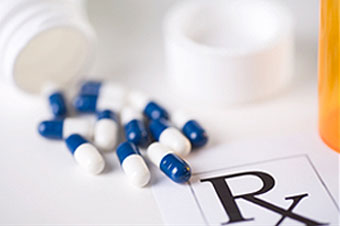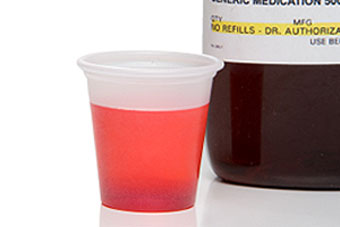Need to Know

Do Not Split Pills
Let’s face it, medicines cost a lot and often people look for short cuts to save money on medicines. Often it costs the same to buy a supply of medicine that comes in 40 mg as one that comes in 20 mg. People will then cut the pills as a way to save money.
Here is a tip from the Institute of Safe Medicine Practices (ISMP). Avoid pill splitting.
Pill splitting can be dangerous. Many medicines are not safe to take after they have been split. Some are coated to be long-acting or to protect the stomach. Always talk with the person’s doctor or pharmacist before splitting medicines. If the doctor decides a pill can be safely split, have the doctor write the prescription to reflect that, "Take 1/2 tab daily." Also ask the pharmacist to split the pills for you. They have the tools to correctly split medicines.

Watch for Expected Effects
People take medicines for a reason, to create an expected response. An antibiotic is for infection. Insulin lowers blood sugar.
When you know the expected effect of a medicine you can judge how a person responds to the medicine. This is important. For example, if a medicine is for pain relief, you can watch a person and later ask if they become more comfortable. If a medicine lowers blood pressure by causing a person to pass urine, you can care for the person and not be worried when they begin to go to the bathroom more often.
When you give medicines to another person, know the expected effects. When the person does not respond as expected, report this to the doctor so that the treatment may be adjusted as needed.
Be Aware of Side Effects
A side effect is a predictable, often unwanted effect of a medicine. A side effect is either harmless or it can cause injury.
Side effects vary by the type of medicine. For example:
- Codeine commonly causes a person to become constipated.
- Antibiotics often cause diarrhea.
- Some blood pressure medicines cause impotence in men.
When side effects occur, the doctor will decide whether to stop the medicine or prescribe a different one. In some cases, the medicine prescribed is the only one for a person’s condition, so the doctor may ask the person to keep taking the medicine. There is a danger of a person not wanting to take a medicine any longer because of side effects.
A doctor will adjust the dosage or prescribe a new medicine when side effects are severe. Lifestyle or dietary changes may help to lessen side effects. Never let the person stop taking a medicine because of side effects without calling the doctor.
Drug Allergies
Allergies are unpredictable responses to medicine. A person may be allergic to a specific medicine (e.g. penicillin) or a class of medicines (such as antibiotics). A person allergic to one drug in a class is more likely to be allergic to other drugs in the class. Allergies can happen with the first dose of a drug but also after a person has taken a medicine for a long time or in the past. Always check to be sure the doctor has not ordered a medicine that the person is allergic to.
Allergy symptoms will vary.

Mild allergic reactions include:
- A rash on the arms, legs, and trunk of the body (see photo)
- Itching of the skin
- Watering of the eyes
Severe allergic reactions include:
- Feeling of warmth
- Flushing of the skin
- Tingling in the mouth or lips
- Light-headedness
- Shortness of breath, wheezing, trouble breathing
- Swelling of the lips, tongue, eyes or face